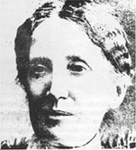
Divisions
-
Community Partnerships and Priorities
- Aboriginal Partnerships
- Child and Youth Wellbeing
-
Community Policy and Engagement
- Advisory groups
- Centenary of ANZAC
- Companion Card Program
- Concessions Guide
- Prevention of Family and Sexual Violence
- International Women's Day
- Frank MacDonald Memorial Prize
- Significant Tasmanian women
- Tasmanian Honour Roll of Women
- Women on Tasmanian boards and committees
- Veterans Programs
- Seniors Card
- Tasmanian Carer Action Plan
- Older Tasmanians
- LGBTIQA+ Tasmanians
- Volunteering
- Multicultural Island
- Food Relief to Food Resilience
- People with Disability
- Women
- Community and Disability Services
- Community Grants
- Contact
- Digital Strategy and Services
- Office of Local Government
- Office of Parliamentary Counsel
- Office of Review and Evaluation
- Office of the Secretary
- Resilience and Recovery Tasmania
- Corporate and Government Services
- Policy Division
- Service Tasmania Unit
- State Service Management Office
Contact Details
By phone
Find the number of a specific division or office to contact them directly or call Service Tasmania on 1300 135 513.
Our staff
Use the Tasmanian Government Directory to find staff contact details
Social media
Follow our social media accounts to keep up to date with specific programs and initiatives.
Jessie Rooke
(1845-1906)
Early suffragist and temperance reformer
 Jessie was born on 10 September 1845 in London, daughter of William Walker, bookkeeper, and his wife Catherine, nee Scollay. On 3 January 1867 she married Peter Charles Reid in Fitzroy (Victoria). After his death she married Charles Rooke, a medical practitioner, on 14 August 1883 at Germanton, New South Wales.
Jessie was born on 10 September 1845 in London, daughter of William Walker, bookkeeper, and his wife Catherine, nee Scollay. On 3 January 1867 she married Peter Charles Reid in Fitzroy (Victoria). After his death she married Charles Rooke, a medical practitioner, on 14 August 1883 at Germanton, New South Wales.
In Sydney Jessie was prominent in the British Women's Bible and Prayer Union and the Marrickville branch of the Women's Christian Temperance Union (WCTU). She moved to Tasmania in the early 1890s and became involved in the Burnie WCTU, being elected President in 1894.
In 1896 she set out on a votes for women tour of Tasmania with the suffrage superintendent for the colony - Georgina Kermode. Not even the onslaught of severe winter weather could deter them from the 200-mile journey by draughty train and rickety coach.
Wherever they went large public gathering turned up to meet the women. They collected campaign funds and distributed leaflets and put their case that ‘the Franchise should be extended to women as an act of common justice.’
By the end of the tour thousands of Tasmania’s had signed their petition calling for votes for women. They presented their petition to Parliament at the end of 1896. The parliamentary process was, of course, problematic. Every time the word "man" was deleted by the House of Assembly the reactionary Legislative Council would put it back in, frustrating all early attempts at reform.
Jessie undertook a second winter tour in 1898 with Elizabeth Nicholls of South Australia, once again collecting many petition signatures on an ambitious itinerary taking in thirty towns.
She became the Tasmanian president of the WCTU in 1898, and was known as 'a lady of enormous debating power', being the hardest working and most prominent Tasmanian suffragist. In 1903 she became the Australasian president of the WCTU.
In 1903 she formed the Tasmanian Women's Suffrage Association to mobilise women for the forthcoming federal election, as the Commonwealth Franchise Act had been passed the previous year. Suddenly and unexpectedly, to avoid anomalies, the Tasmanian Legislative Council conceded the state vote for white women. Despite this breakthrough, women did not become eligible to stand for election to either Tasmanian House of Parliament until 1921.
Jessie Rooke was Tasmanian and Australasian president of the WCTU until her death in 1906, being one of the first women to gain prominence outside Tasmania. She was also an active member of the National Council of Women. Unfortunately she died before she could exercise her state voting rights.
References :
Alexander, A., The Public Role of Women in Tasmania, 1803-1914, Unpublished PhD thesis, University of Tasmania, 1989
Caine, B., Australian Feminism: a Companion, Melbourne: Oxford University Press, 1998
Jordan, R., White-Ribboners: the Woman's Christian Temperance Union of Tasmania, 1885-1914, Unpublished BA Hons thesis, University of Tasmania, 2001
Radi, H. (ed), 200 Australian Women: a Redress Anthology, Broadway: Women's Redress Press Inc., 1988
Links :

